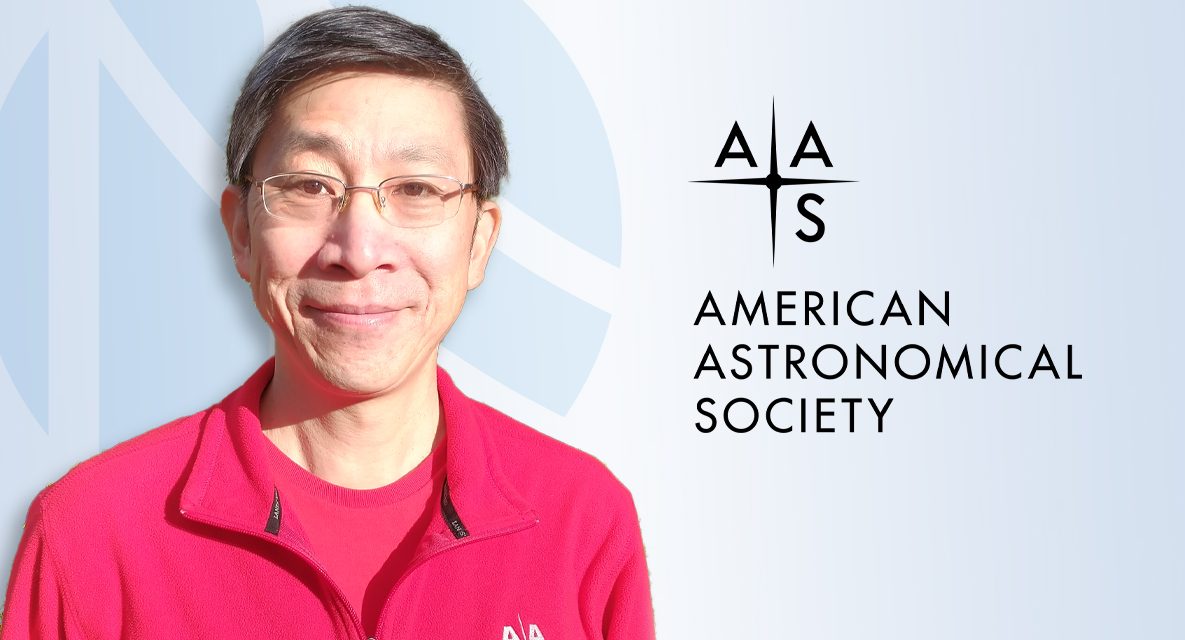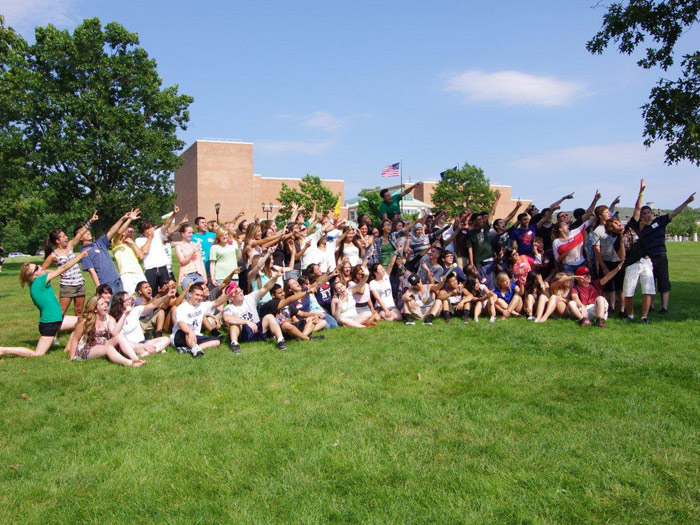Colliding galaxies, supermassive black holes, and the star formation history of the universe keep CSI astrophysics professor Charles Liu awake at night.
“And grading papers, too,” he jokes. “All in a good way, though.”
Professor Liu likes to say that he enjoyed college so much that he decided to stay there his whole life. Teaching, research, and working with students have given him great professional joy; and last month, the American Astronomical Society (AAS), the world’s largest professional organization of astronomers and astrophysicists, awarded Charles its 2024 Education Prize.
The American Astronomical Society Education Prize, according to the Society, “recognizes outstanding contributions to the education of the public, students, and/or the next generation of professional astronomers,” and was first awarded in 1992 to the astronomer Carl Sagan. “There’s a common misconception that the scientific community doesn’t think good teaching is important,” said Professor Liu. “In fact, the astronomical community has strongly supported and promoted education for decades. I’m tremendously honored and humbled to be chosen for this prize by my peers and colleagues.”
With an emphasis on Dr. Liu’s deep and wide-ranging career, the AAS noted that it chose Dr. Liu “for his national and international impact as an enthusiastic astronomy educator throughout his career — including his contributions to informal education via his work at the American Museum of Natural History, his numerous popular science books, and his podcast ‘The LIUniverse’; as well as his contributions to formal education as a professor and mentor. The award also recognizes his service to the astronomy education community as AAS Education Officer and inaugural Chair of the AAS Education Committee.”
“One of the best things about my job is that I’ve had great freedom to choose what professional things I want to do, and to try all kinds of new and interesting things,” said Professor Liu. “I especially enjoy working with students, whether it’s teaching introductory or upper-division courses, mentoring undergraduate science majors, or supervising advanced research with PhD students.” He has done all these kinds of work and more at CSI and The Graduate Center, CUNY, including his research on starburst galaxies and supermassive black holes, while teaching more than 300 students each semester in his general education astronomy and physics classes.
Charles isn’t resting on his laurels. His latest book, on the topic of quantum physics, is due out in stores this summer. His latest research, studying the changes of star formation activity in galaxies viewed with the James Webb Space Telescope, is moving ahead as a member of the Cosmos-Web science team. And looking to the future, he is on the team that is constructing the Vera Rubin Observatory—the most advanced astronomical telescope on Earth’s surface, which on its first night of observations in 2025 will gather more data than all the rest of the world’s telescopes put together. “CSI students are already working with me on Rubin Observatory research,” says Professor Liu. “Our College is at the forefront of astronomy and astrophysics—teaching, learning, and studying the universe. It’s a great time to be here and do great things.”















